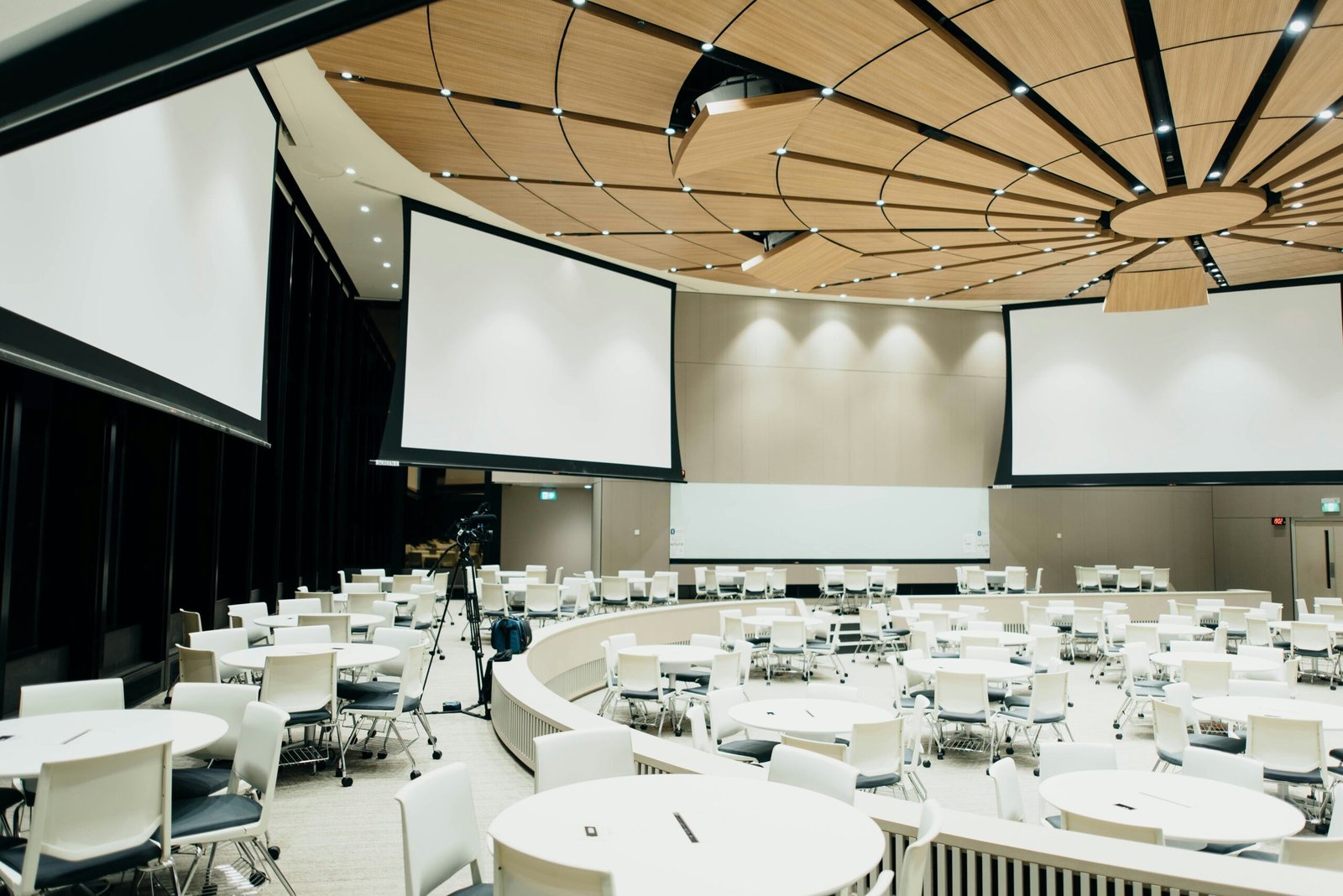Introduction
Organizing a corporate event requires meticulous planning and the perfect venue to ensure the success of the occasion. Whether it’s a team-building retreat, a conference, or a holiday party, the right setting can make a significant difference. This article explores various types of places suitable for corporate events, offering insights into their advantages and unique features.
Types and Categories
Hotels and Resorts
- Luxury Hotels: Ideal for high-profile conferences and meetings with top-tier amenities.
- Boutique Hotels: Perfect for intimate gatherings and creative workshops.
- Resorts: Great for team-building activities and retreats with on-site recreational facilities.
Conference Centers
- Dedicated Venues: Equipped with state-of-the-art technology and ample space for large gatherings.
- University Campuses: Offer professional environments with academic flair.
- Convention Centers: Suitable for large-scale events like trade shows and expos.
Historical and Cultural Venues
- Museums: Provide a unique backdrop with educational and cultural significance.
- Historic Homes and Estates: Offer a blend of elegance and history, ideal for formal events.
- Libraries: Perfect for intellectual and literary-themed events.
Outdoor Venues
- Parks and Gardens: Ideal for relaxed, informal gatherings and picnics.
- Beaches: Perfect for laid-back, creative brainstorming sessions.
- Mountain Lodges: Great for retreats focused on nature and tranquility.

Unique and Unconventional Venues
- Cruise Ships: Offer an all-inclusive experience with travel and event facilities.
- Theaters: Provide dramatic settings for product launches and performances. These make for a great corporate event venue nearby.
- Sporting Venues: Ideal for active team-building events and corporate sports days.
Restaurants and Wineries
- Fine Dining Restaurants: Perfect for client dinners and high-end meetings.
- Casual Restaurants: Suitable for informal gatherings and team celebrations.
- Wineries: Offer picturesque settings for relaxed corporate events and tastings.
Co-working Spaces
- Urban Offices: Ideal for modern, creative meetings and networking events.
- Suburban Spaces: Provide a calm environment away from the hustle of the city.
Recreational Venues
- Golf Courses: Great for networking events and client entertainment.
- Amusement Parks: Perfect for family-friendly corporate events and team outings.
- Bowling Alleys: Offer a fun and relaxed atmosphere for team-building activities.
Recognizing the Right Venue for Your Event
- Location: Accessibility for all attendees.
- Capacity: Adequate space for the number of guests.
- Amenities: Availability of necessary facilities and services.
- Atmosphere: Suitability of the venue’s ambiance for the event’s purpose.
- Budget: Alignment with the event’s financial plan.
Factors Influencing Venue Choice
- Event Type: Different events require different settings.
- Audience Demographics: Preferences and expectations of the attendees.
- Season and Weather: Influence on outdoor vs. indoor venue choice.
- Corporate Culture: Alignment with the company’s brand and values.
- Logistics: Ease of planning and execution at the venue.
Assessing Venue Suitability
- Site Visits: In-person inspections to evaluate facilities.
- Reviews and Testimonials: Feedback from previous events held at the venue.
- Vendor Recommendations: Insights from event planners and service providers.
- Technical Checks: Ensuring AV and technical capabilities meet requirements.
- Contract Reviews: Understanding terms, conditions, and potential hidden costs.
Preparing the Venue
- Customization: Tailoring the venue to fit the event’s theme and requirements.
- Technical Setup: Ensuring all technical needs are addressed in advance.
- Catering Services: Arranging food and beverages that suit the event’s format.
- Decoration and Ambiance: Creating the desired atmosphere through decor.
- Guest Services: Providing necessary support like parking, accessibility, and accommodations.
Tips for Successful Event Planning
- Early Booking: Securing the venue well in advance to avoid last-minute issues.
- Detailed Contracts: Ensuring all services and contingencies are covered.
- Backup Plans: Preparing for unexpected changes or emergencies.
- Guest Communication: Keeping attendees informed about the venue and event details.
- Feedback Mechanism: Setting up a system to gather post-event feedback for future improvements.
Real-Life Examples
- Successful Corporate Retreats: Stories of companies that boosted team morale through well-chosen venues.
- Innovative Conferences: Examples of unique venues that enhanced attendee engagement and satisfaction.
- Product Launches: Case studies of successful product unveilings in unconventional settings.
Expert Insights
Professional Advice
- Event Planners: Tips from experienced professionals on selecting the right venue.
- Catering Experts: Insights on choosing menus that complement the venue and event type.
- Technical Specialists: Advice on ensuring technical readiness for corporate events.
Conclusion
Choosing the right venue is crucial for the success of any corporate event. From luxury hotels to unconventional settings like theaters and cruise ships, the options are vast. By considering the specific needs of the event and the preferences of the attendees, planners can create memorable and impactful experiences. Proper planning, early booking, and attention to detail are key to ensuring a seamless and successful event.
